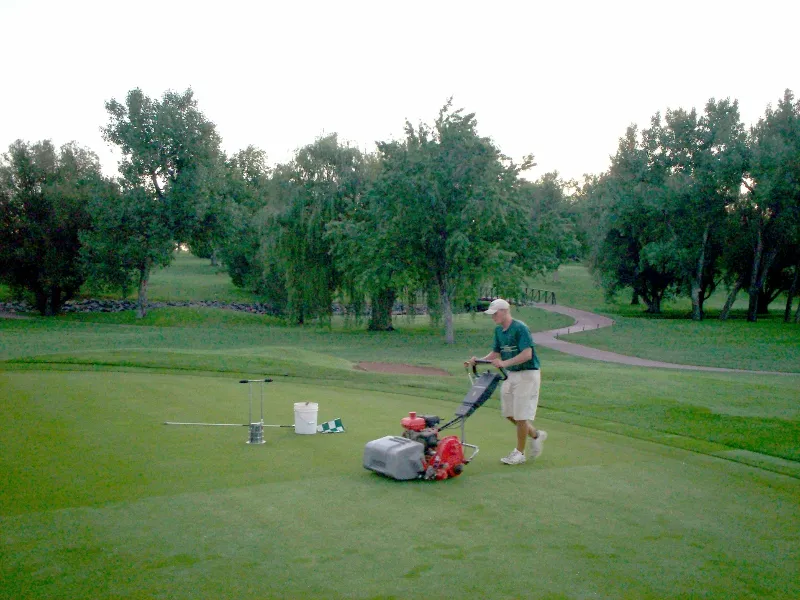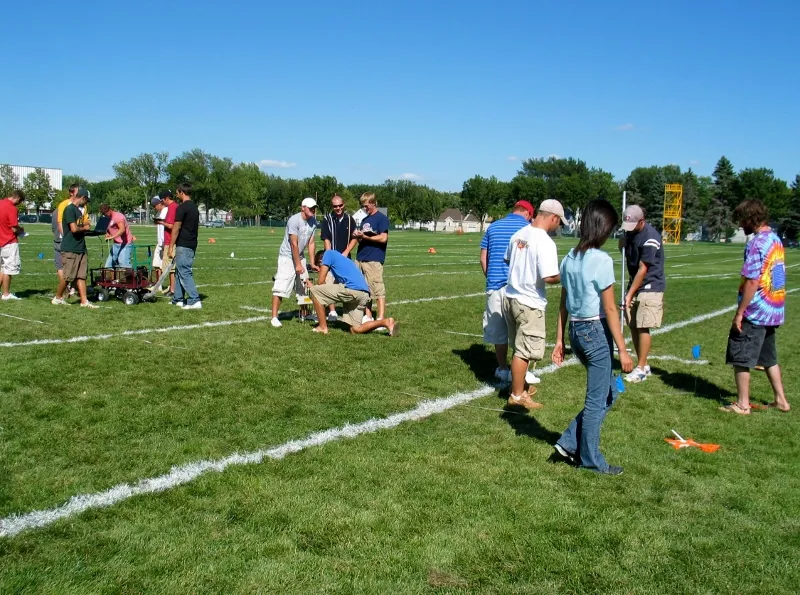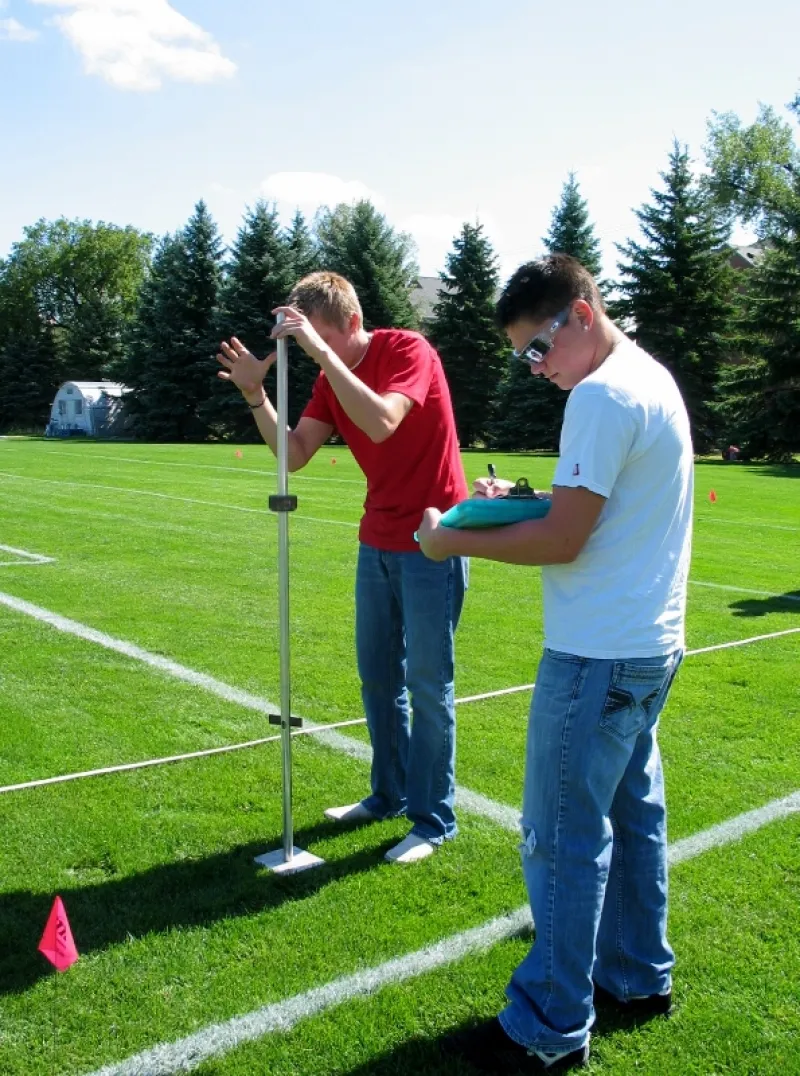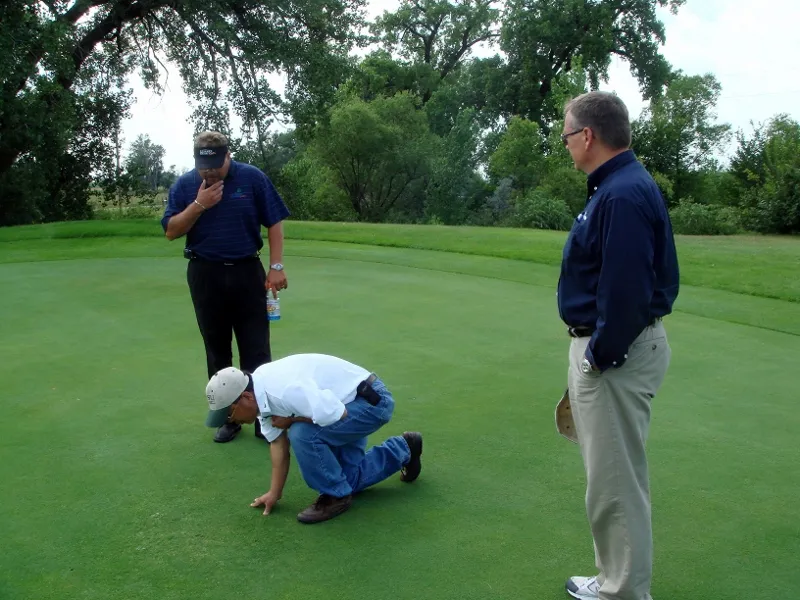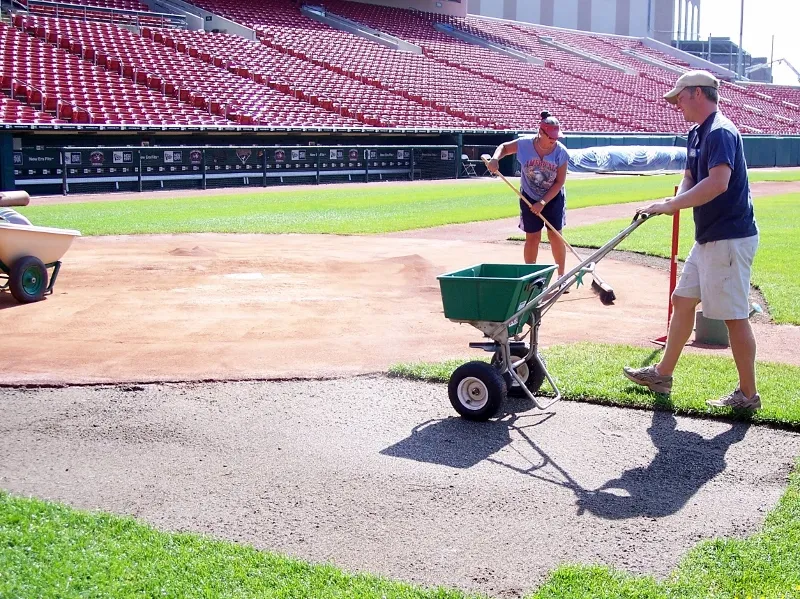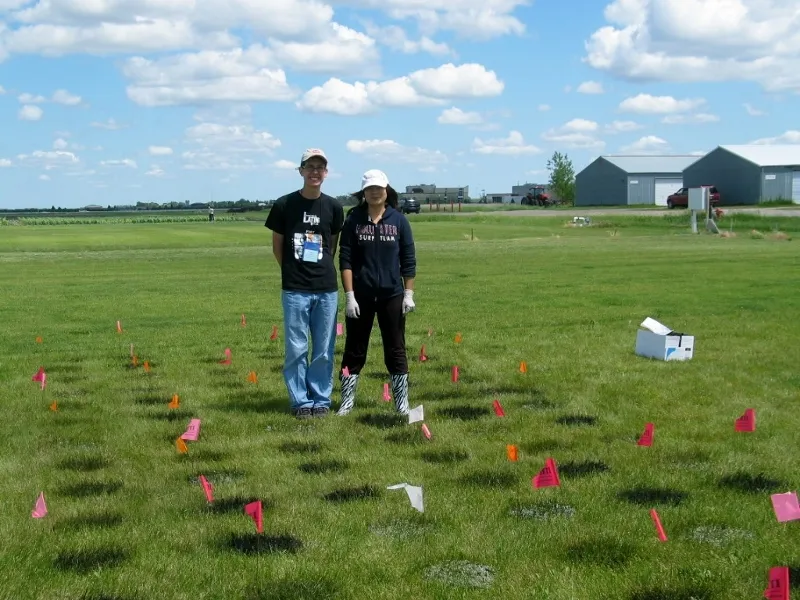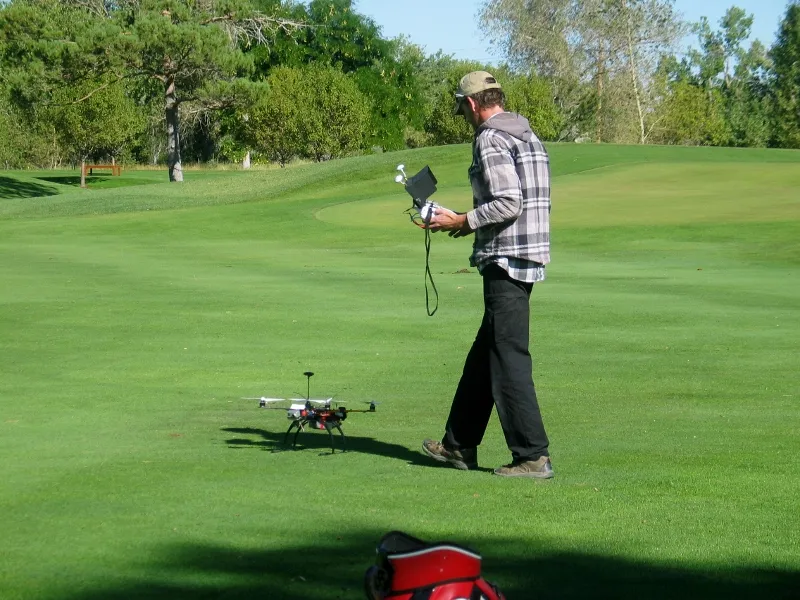Sports and Urban Turfgrass Management
Turfgrass management is a profession requiring two to four years of higher education to satisfy the clientele needs, from home landscapes to sports facilities and golf courses. Although it is a sector of the greater green industry, the sports fields and golf course management sector is so big in the U.S. that a unique market, culture, and skill set is demanded. A sports turf manager must be competent in turfgrass and soil science, proper irrigation practices, pest control, budgeting of resources, personnel management and diplomacy. The demands are rigorous, but the rewards usually match such demands. Currently, there is an unsatisfied national demand for graduates with these skills and interests.
The Program
The Sports and Urban Turfgrass Management (SUTM) option offered by the Horticulture curriculum in the Department of Plant Sciences at North Dakota State University is a four-year curriculum specialized to the particular needs of the green industry. The cluster of courses is more than simply an introduction to turfgrass management, as is typically offered in a horticultural curriculum. The degree requires that students participate in at least one internship experience. These internships are an enriching process to the academic education and skills that students develop at NDSU and greatly enhance their job opportunities after graduation.
Career Opportunities
Golf Course Superintendent
There are about 14,000 golf courses in the United States and its territories. Starting as an assistant, it is possible for a graduate to become a full-fledged golf course superintendent in three to five years. Starting salaries range from $35,000 to $40,000, with the national average of head superintendents being more than $89,000, according to a 2017 national survey. When the course is a private country club, usually a generous benefit package is included along with a house on the course property.
Sports Turf Management
There are approximately 16,000 high school, 2,200 college/university and 800 professional sports facilities in the U.S. providing numerous job opportunities for turf managers. According to the Sports Turf Manager’s Association (STMA), their membership exceeds 2,600. The average salary of sports turf managers is about $65,295, according to a 2016 survey. Sports fields include baseball, football, soccer, lacrosse, rugby, lawn bowling and cricket.
Lawn Care Operator
Lawn care operators comprise the largest single group of potential career opportunities for the graduate, with more than 6,000 companies in the United States servicing millions of American lawns at the residential, commercial and institutional levels. The most current estimate of expenditures in this area of turfgrass management is pegged above $17 billion. Often these companies are known as turn-key operations where the company is involved in property design, installation, landscape construction and landscape maintenance. Several companies at this capacity operate nationally, while others operate on a regional basis. Finally, for the entrepreneur, opportunities abound to establish one’s own business.
Facility Managers
The curriculum is inclusive enough for the graduate to move into facility management if the desire or opportunity arises. Golf course superintendents could move into managing a resort where golf courses, swimming pools and tennis courts are inclusive along with a dining facility.
Scholarships
Students are eligible for dozens of scholarships offered in the department. Contact the Department of Plant Sciences or the College of Agriculture, Food Systems, and Natural Resources for more information. Additional scholarships are available at the regional and national levels of associations.
Turf Club
The goals of the Turf Club are to provide students with opportunities to share information, connect with the turf industry, gain real world experience and broaden their knowledge. The club organizes field trips, topic discussions and presentations by guest speakers. Other activities include attending regional and national turf conferences, community service and fundraising.
High School Preparation
Turfgrass management requires the ability to work with others as well as independently, and also requires good organizational and communication skills. Additionally, a very good understanding of basic math, chemistry, physics and plant biology is essential in this field. Computers are used in all walks of life, and sports and urban turfgrass management is no exception. Comfort working with computers and a range of software is needed.
The Facilities
Loftsgard Hall, a state of the art facility, houses the Department of Plant Sciences, which includes classrooms, research labs and student learning centers. Other facilities include greenhouse space for turfgrass research and teaching, as well as a variety of trial plots on the NDSU campus and at Research Extension Centers in Dickinson and Williston.
